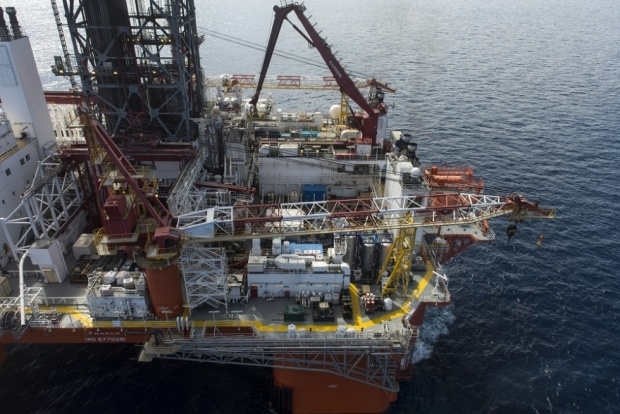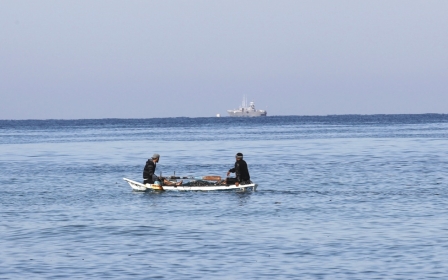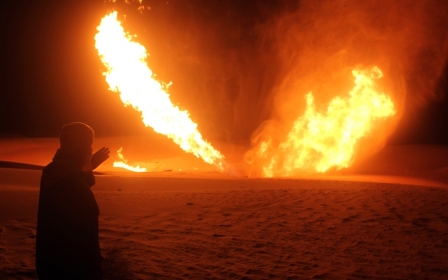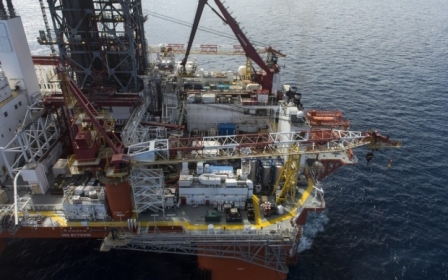Egypt’s natural gas companies ordered to pay $1.76bn to Israel

Egypt’s natural gas companies on Sunday were ordered to pay at least $1.76bn in compensation to Israel's state-owned electric utility company, Israel Electric Corp, for halting gas supplies.
Damages of $4bn had been sought from Egyptian providers EGPC and EGAS, with the claim that huge costs had been incurred after Egypt stopped exports in 2012 following a string of militant attacks on its gas pipeline in the Sinai.
The company said on Sunday that an international arbitrator, the Geneva-based International Chamber of Commerce, had now awarded it $1.76bn plus interest, AP agency reported. Egypt said later that it would appeal against the payment order within six weeks and halted approvals to companies to import gas from Israel pending the result of the appeal.
According to an explosive Al Jazeera documentary, Egypt's Lost Power, released last year, the roots of the deal go back to 2000 when an agreement appears to have been struck between ministers in the governments of the two countries to sell very cheap Egyptian gas to Israel.
For years, Israel was receiving some of the cheapest gas in the world thanks to the deal, which Egyptian prosecutors probing the case after the 2011 revolution said had cost Egypt $714mn in lost revenues, but other analysts believe the figure is closer to tens of billions of dollars.
According to energy analyst Mika Minio-Paluello, who was a key source in Al Jazeera's investigation, Egypt Mediterranean Gas (EMG), which oversaw the deal, “were receiving [gas] from the Egyptians for [the later higher price of] $3 and then selling it on to the Israelis for $4.5 and basically pocketing the difference”.
Details of the deal came to light after the revolution ousted longtime strongman Hosni Mubarak, prompting a huge backlash and escalated militant activity that took aim at Egypt's gas infastructure.
In Al Jazeera's documentary, former Israeli energy minister Yosef Paritzky put it succinctly: “The military in Egypt are our partners in collaboration in this region… The army, the government, the intelligence see us as legit, which is very important and we should encourage this”.
He also disparaged any hope for democracy in Egypt: “What do [the Muslim Brotherhood] have to do with democracy? God knows, and this, almost, stupidity to bring Western values into a country which is fully Islamic, many of which are poor, fundamental Islams [sic], is ridiculous”.
Hatem Azzam, former head of the Egyptian parliament’s Energy and Industry Committee told Al Jazeera that the gas sell-off was “the most corrupt deal ever in the history of Egypt and in the history of the oil world… no such agreement… exists on the planet”.
In 2012, Azzam was part of post-uprising attempts to reform the sector. With long experience in the oil and gas industries, Azzam backed attempts by Egypt’s first democratically elected president, Mohamed Morsi to investigate past corruption.
A 2009 email from the British Consulate in Jerusalem (obtained in 2012 by Palestinian academic Victor Kattan using the freedom of information law) sent to the Foreign and Commonwealth Office in London said that Israel is buying oil at way below market value.
“Commercially, and according to BG and other energy experts, Israel isn't offering to pay the full and fair price,” the official wrote (his name was redacted).
Israel “still receives relatively cheap gas from Egypt ($1.25 per unit) but at the same time there is growing pressure inside Egypt to review that [sic] preferable prices.”
Stay informed with MEE's newsletters
Sign up to get the latest alerts, insights and analysis, starting with Turkey Unpacked
Middle East Eye delivers independent and unrivalled coverage and analysis of the Middle East, North Africa and beyond. To learn more about republishing this content and the associated fees, please fill out this form. More about MEE can be found here.




